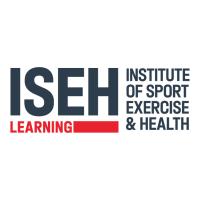This ISEH Learning course explores a multi-disciplinary approach in treating, rehabilitating and recovering from ACL injuries to optimise an athlete's return to sport. This course is split into three sections detailing how physiotherapy, strength & conditioning, and nutrition can work effectively together to support an athlete's recovery from an ACL injury. Athletes (both elite & recreational) differ in their injury types, their sports, positions and styles of play, but also in their biomechanics and physiology. Hence a 'one-size fits all' approach is often unsuccessful and effective rehabilitation requires an individualised programme.
This workshop aims to assist clinicians to optimise their athletes’ rehabilitation through gaining a better understanding of how physiotherapy, S&C and nutrition can contribute through the rehabilitation process. This course combines both theoretical and practical learning led by three leading ISEH specialists with backgrounds in physiotherapy, strength & conditioning, and nutrition who continue to manage and oversee the care of elite and recreational athletes from across a range of sports in recovering from ACL injuries and returning to sport.
This workshop is split into 3 different sections:
- Part 1 examines initial management and optimising treatment and management during pre-operative, perioperative, early and mid-rehabilitation stages.
- Part 2 examines residual deficits following ACL injury, how to assess them and design targeted strategies to optimise return to sport readiness.
- Part 3 is focused on performance nutrition for the prevention and recovery from injury and how tailored nutrition plans and multi-disciplinary collaboration can optimise an athlete’s recovery and return to play.
Physiotherapy Learning Objectives (Led by Dr Bruce Paton):
During the physiotherapy section of this course, learners will cover the following:
1.To understand key strategies to optimise management in each phase of ACL rehabilitation:
- Prehabilitation
- Perioperative period
- Early rehabilitation phases
- Middle and capacity building phases
- Some components of return sport phase.
2. To provide a clinical reasoning process / framework to aid with optimising decision making in these rehabilitation phases
Strength & Conditioning Learning Objectives (Led by Dr Paul Read)
This segment will enable learners to accurately assess athlete's physical capacity to then design and deliver targeted training and reconditioning programmes following injury with logical systems that can be applied to the return to sport continuum.
Learners will cover the following:
- Provide a clear framework to analyse an athlete’s sport demands and build high-performance assessment and reconditioning models.
- Understand how to interpret data collected and complete a gap analysis to identify trainable deficits and increase return to sport readiness.
- Provide and practically demonstrate an exercise progression framework which can be applied to the return to sport continuum following injury.
Nutrition Learning Objectives (Led by Dr Richard Allison)
A comprehensive understanding of nutrition is essential for effective injury recovery and enhanced athletic performance. We will examine the detrimental effects of inadequate nutrition on both recovery and athletic performance, providing real-world case studies.
Learners will cover the following during this session:
- Understand the two main stages of injury recovery—healing and rehabilitation—and the critical role nutrition plays in supporting tissue repair and overall recovery.
- Recognise the negative impact of inadequate nutrition on recovery, including delayed healing and muscle loss, and the importance of balanced energy intake, macronutrients, micronutrients, and supplementation.
- Implement nutrition strategies that mitigate muscle loss, accelerate recovery, and potentially prevent injuries by supplying the body with essential nutrients to support healing and maintain resilience.
- Provide a practical understanding of how tailored nutrition plans and multidisciplinary collaboration can optimise an athlete's recovery and facilitate a successful return to peak performance.
This course is suitable for sports scientists, strength and conditioning coaches, physiotherapists, sports rehabilitators, coaches, sports medicine doctors and other allied health professionals involved with or wishing to increase their theoretical understanding and practical application of ACL injury management. It is also suitable for students in the above disciplines.
Additional information about the course, including details about the course leaders and the schedule, can be found on the event booking page (linked).
About the ISEH
The ISEH provides excellence in elite sports performance and sports injury prevention and management whilst bridging the gap between elite sport, amateur sports and exercise prescription, for the improvement of the healthcare of the population.
The ISEH is a partnership between UCLH (University College London Hospitals, NHS Foundation Trust) HCA Healthcare UK, UCL, UK Sports Institute and the British Olympic Association.




































